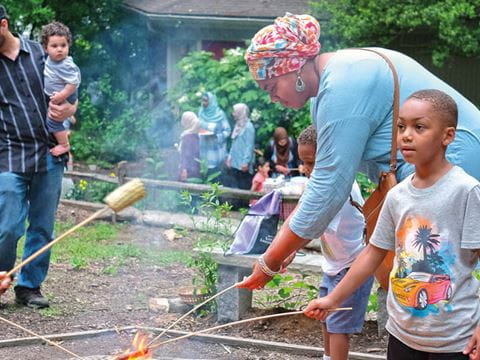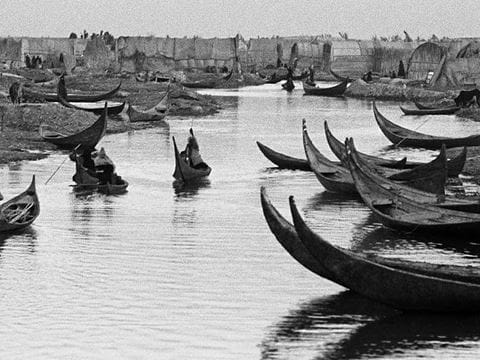
FirstLook: Hambori, Mali
- Arts
- Photography
Photograph by Kevin Bubriski
I have many memories of road trips where the possibility of stopping for a casual photo was impossible. I’ve passed by landscapes, seascapes, storefronts, bazaars, people and events where I didn’t have the time to capture images. But this day, now 20 years ago, I didn’t let that happen. Writer Lou Werner and I were traveling through Hombori after completing our story for AramcoWorld on elephant conservation, on our way to our next assignment to the north in Gao, Mali. This meant buses, bush taxis and, this afternoon, hitchhiking. The mountain in the background of the photo is named The Hand of Fatima, and it served as the most beautiful backdrop for this part of our trip. Lou kept one eye on our baggage and another alert for our next ride, while I took about 10 minutes to wander into this open landscape. I wanted to make sure I photographed this place, where camels, goats and donkeys are shepherded by the Tuareg residents of the area. Minutes later we packed into a car with a man and his two sons, and thanks to him, we arrived in Gao by dusk.
—Kevin Bubriski
www.kevinbubriski.com
@kevinbubriski
You may also be interested in...

FirstLook: Ramadan Picnic
Arts
On a warm June evening, people gathered at a park in Bethesda, Maryland, for a community potluck dinner welcoming the start of Ramadan..jpg?cx=0.5&cy=0.5&cw=480&ch=360)
FirstLook: A Market’s Port of Call
History
Arts
After the war in 1991, Kuwait faced a demand for consumer goods. In response, a popular market sprang up, selling merchandise transported by traditional wooden ships. Eager to replace household items that had been looted, people flocked to the new market and found everything from flowerpots, kitchen items and electronics to furniture, dry goods and fresh produce.
All the Lands Were Sea
History
Arts
In late 1967, photographer Tor Eigoland traveled for more than: a month, mostly by canoe, among the countless villages of southern Iraq's vast marshes. Now, 45 years later, writer Anthony Sattin calls his photographs a "rare and ethnographic record of a lost world. They bring us back to a time and place where people lived in harmony with their environment and respected the balance the natural world needs to thrive.'